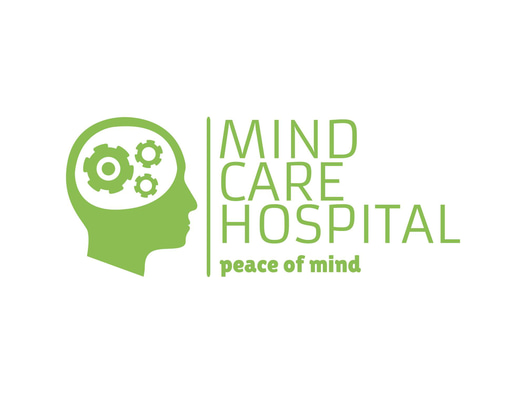Myths vs. Facts About Mental Illness and Psychiatric Treatment
Introduction
Mental illness and psychiatric treatment are subjects often clouded by myths and misconceptions. These misunderstandings can lead to stigma, preventing individuals from seeking the help they need. In this blog, we will debunk common myths and present facts to provide a clearer understanding of mental health issues and the importance of psychiatric care.
---
Table of Contents
1. Understanding Mental Illness
2. Common Myths vs. Facts
- Myth 1: Mental Illness is Rare
- Myth 2: Mental Illness is a Sign of Weakness
- Myth 3: Mental Illnesses Are Permanent
- Myth 4: Psychiatric Treatment is Ineffective
- Myth 5: Medications are Harmful
3. The Importance of Early Intervention
4. Role of Therapy in Mental Health
5. Breaking the Stigma
6. Resources and Support Systems
7. Conclusion
---
1. Understanding Mental Illness
Mental illnesses are medical conditions that affect a person's thinking, feeling, mood, and behavior. They can impact daily functioning and relationships and are often caused by a combination of genetic, biological, environmental, and psychological factors. Common mental illnesses include depression, anxiety disorders, bipolar disorder, schizophrenia, and eating disorders.
2. Common Myths vs. Facts
Myth 1: Mental Illness is Rare
Fact: Mental illness is more common than many people think. According to the World Health Organization (WHO), one in four people will be affected by a mental or neurological disorder at some point in their lives. Mental health issues can affect anyone, regardless of age, gender, or socioeconomic status.
Myth 2: Mental Illness is a Sign of Weakness
Fact: Mental illness is not a sign of weakness or character flaw. It is a medical condition that requires treatment and care, just like any physical illness. Many factors contribute to mental health issues, including brain chemistry, trauma, and family history.
[Insert Image: Image of brain highlighting areas affected by mental illness]
Myth 3: Mental Illnesses Are Permanent
Fact: Many people recover from mental illness or learn to manage their symptoms effectively. With the right treatment, which may include medication, therapy, and lifestyle changes, individuals can lead fulfilling lives. Early intervention and ongoing support are crucial for positive outcomes.
Myth 4: Psychiatric Treatment is Ineffective
Fact: Psychiatric treatments, including medications and various forms of therapy, are highly effective. Many studies have shown significant improvement in individuals' symptoms and quality of life with appropriate treatment. Treatment plans are often tailored to the individual’s specific needs.
Myth 5: Medications are Harmful
Fact: Psychiatric medications are prescribed to help manage symptoms and improve quality of life. While they may have side effects, healthcare providers carefully monitor patients to minimize risks. It’s important to communicate with your healthcare provider about any concerns.
3. The Importance of Early Intervention
Early intervention in mental health can significantly improve outcomes. Recognizing the early signs of mental illness and seeking treatment promptly can prevent the condition from worsening. Early treatment helps individuals manage symptoms more effectively and reduces the risk of severe complications.
4. Role of Therapy in Mental Health
Therapy, or counseling, is a cornerstone of mental health treatment. Various therapeutic approaches, such as cognitive-behavioral therapy (CBT), dialectical behavior therapy (DBT), and psychodynamic therapy, address different aspects of mental health issues. Therapy helps individuals understand their thoughts and behaviors, develop coping strategies, and improve emotional regulation.
5. Breaking the Stigma
Stigma surrounding mental illness prevents many people from seeking help. Education and awareness are key to breaking down these barriers. Open conversations about mental health, sharing personal stories, and promoting understanding can reduce stigma and encourage more people to seek the help they need.
[Insert Image: Group of diverse people holding signs that promote mental health awareness]
6. Resources and Support Systems
There are many resources and support systems available for individuals struggling with mental illness. These include mental health hotlines, support groups, online forums, and professional organizations like the National Alliance on Mental Illness (NAMI) and the American Psychological Association (APA). Seeking support from family and friends is also crucial.
[Insert Image: Helpline numbers and logos of mental health organizations]
7. Conclusion
Understanding the facts about mental illness and psychiatric treatment is essential in combating stigma and supporting those affected. By debunking myths and spreading accurate information, we can create a more compassionate and supportive society. If you or someone you know is struggling with mental health issues, remember that help is available, and recovery is possible.
---
Sources
- World Health Organization (WHO)
- National Institute of Mental Health (NIMH)
- National Alliance on Mental Illness (NAMI)
- American Psychological Association (APA)
---
By addressing these myths and highlighting the facts, we can foster a better understanding of mental health and encourage more people to seek the help they need. Remember, mental health is just as important as physical health, and taking steps to care for it is a sign of strength, not weakness.
---




